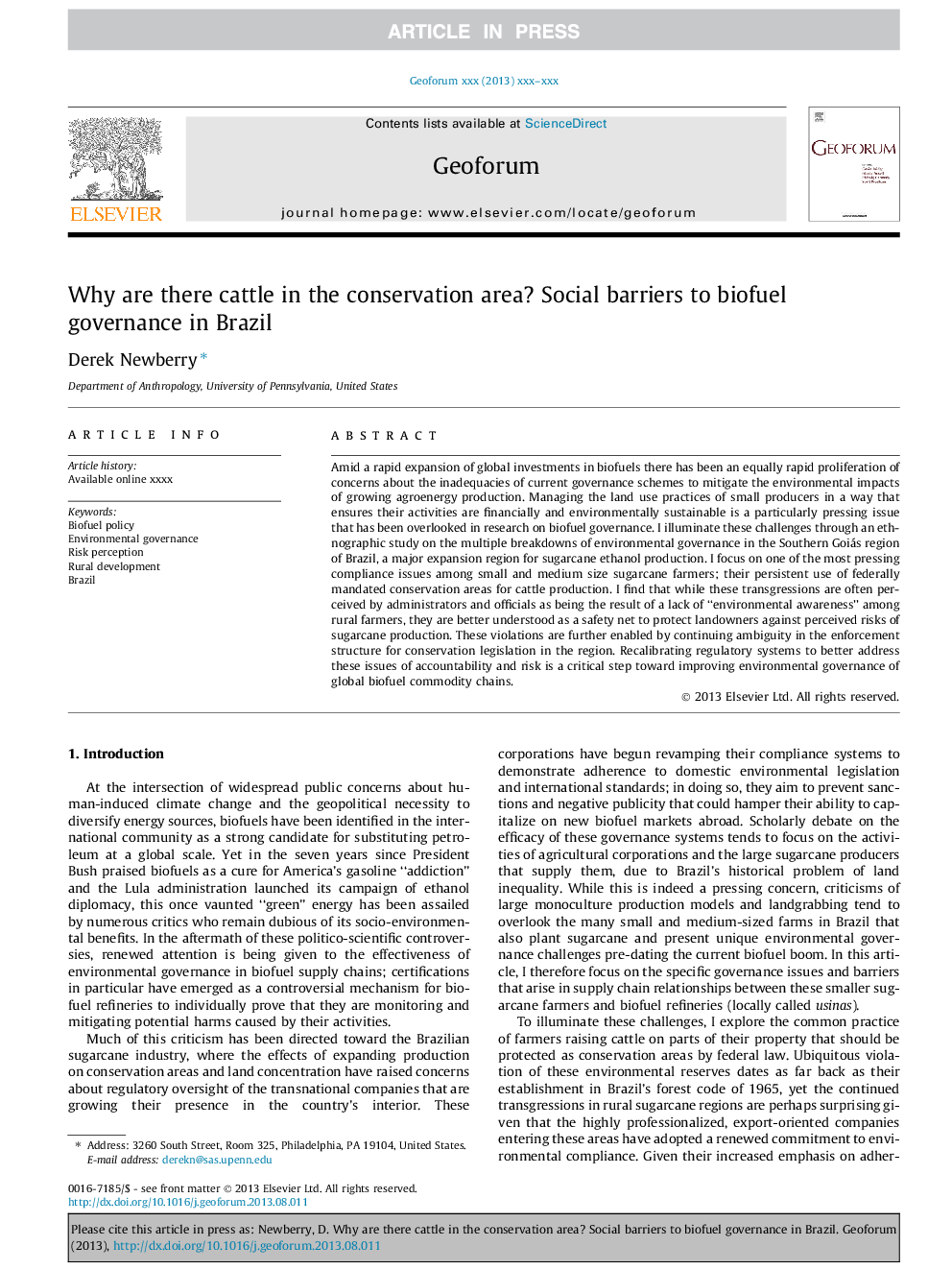| Article ID | Journal | Published Year | Pages | File Type |
|---|---|---|---|---|
| 5074030 | Geoforum | 2014 | 9 Pages |
Abstract
Amid a rapid expansion of global investments in biofuels there has been an equally rapid proliferation of concerns about the inadequacies of current governance schemes to mitigate the environmental impacts of growing agroenergy production. Managing the land use practices of small producers in a way that ensures their activities are financially and environmentally sustainable is a particularly pressing issue that has been overlooked in research on biofuel governance. I illuminate these challenges through an ethnographic study on the multiple breakdowns of environmental governance in the Southern Goiás region of Brazil, a major expansion region for sugarcane ethanol production. I focus on one of the most pressing compliance issues among small and medium size sugarcane farmers; their persistent use of federally mandated conservation areas for cattle production. I find that while these transgressions are often perceived by administrators and officials as being the result of a lack of “environmental awareness” among rural farmers, they are better understood as a safety net to protect landowners against perceived risks of sugarcane production. These violations are further enabled by continuing ambiguity in the enforcement structure for conservation legislation in the region. Recalibrating regulatory systems to better address these issues of accountability and risk is a critical step toward improving environmental governance of global biofuel commodity chains.
Related Topics
Social Sciences and Humanities
Economics, Econometrics and Finance
Economics and Econometrics
Authors
Derek Newberry,
